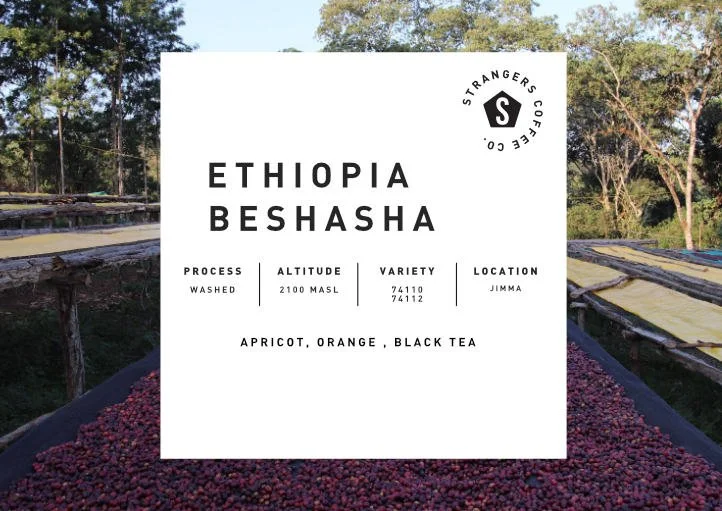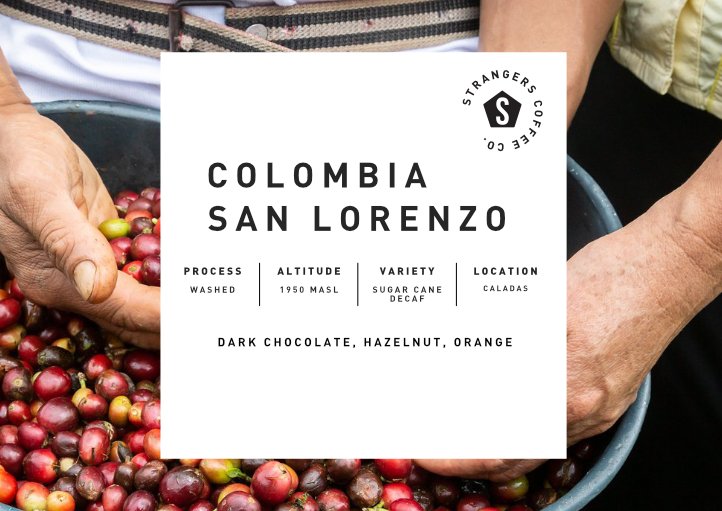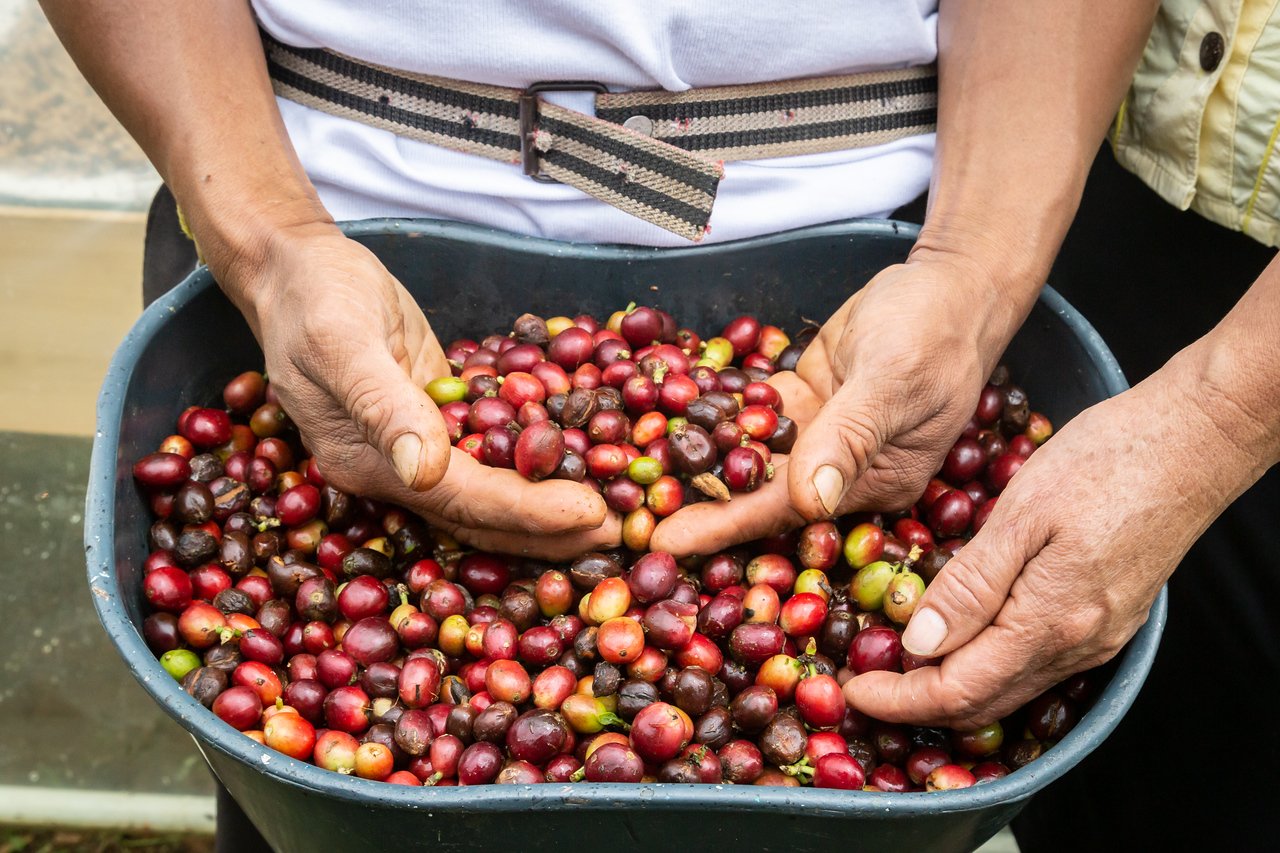Ethiopia Beshasha Washed



Ethiopia Beshasha Washed
NEW: Apricot / Orange / Black Tea
ALTITUDE - 2100 MASL // REGION - JIMMA // PROCESS - WASHED // VARIETY - 74110 & 74112
Ethiopia Beshasha Washed 100% Arabica Speciality Grade Coffee
Mustefa Abakeno: A Pioneer of Quality Coffee in Western Ethiopia's Jimma Zone
Mustefa Abakeno is a dedicated smallholder coffee farmer from the picturesque Jimma Zone in Western Ethiopia. His 18-hectare farm, set at an impressive 2,040 metres above sea level, showcases Ethiopia's rich coffee heritage. With coffee varieties sourced from the reputable Jimma Research Centre, Mustefa’s farm stands as a testament to both tradition and innovation in Ethiopian coffee cultivation.
Traditional Meets Modern in Coffee Processing
In his early farming years, Mustefa invested in a three-disc coffee pulper to elevate his processing techniques. This allowed him to process half of his harvest as Fully Washed coffee, while the other half undergoes the natural drying process with cherries dried with the pulp intact. Due to limited water resources and fermentation space, pulped coffee is fermented briefly (eight hours) before transferring to drying beds, resulting in a delicate, honey-like flavour. In contrast, naturally processed beans enjoy a longer drying period, typically 24-27 days on African raised beds, enhancing their unique flavour profile.
Beshasha Wet Mill: Mustefa's Step into Exporting
In 2018, regulatory changes allowed Mustefa to directly engage with buyers, marking the beginning of his journey as an exporter. To support this new venture, he established the Beshasha wet mill, which processes coffee from his farm and neighbouring outgrowers who manage 4 to 10 hectares each. By processing both his and local outgrowers' coffee, Mustefa strengthens community ties while ensuring consistent quality in his offerings.
Enhancing Coffee Quality Through Partnerships
Mustefa collaborates with the Falcon team in Addis Ababa to enhance his coffee quality. This partnership focuses on essential production steps, including cherry selection, drying, and farm management, creating a more direct and transparent supply chain. By working closely with Falcon, Mustefa ensures a greater share of profits returns to the coffee producers.
Agronomic Expertise: A Partnership with Harun
In 2021, Falcon agronomist Harun joined Mustefa’s team, bringing expertise in training and supporting local farmers. Harun’s contributions include improvements at the washing station, such as shade netting for drying beds to reduce heat exposure, quality checks at cherry delivery, and careful monitoring of moisture levels. These measures support consistent drying and high-quality lot assembly.
Advanced Infrastructure and Technology in Coffee Processing
Mustefa's commitment to quality is reflected in his investment in infrastructure and technology. A small field lab, equipped with a high-spec Sinar moisture reader, ensures all parchment reaches consistent moisture levels before storage. Harun oversees quality grading, classifying day lots by quality and cupping profile, while imparting Good Agricultural Practices (GAP) to local farmers. This training aims to improve the productivity and quality of neighbouring coffee gardens.
Expanding Collection Sites to Enhance Community Development
During the 2022 off-season, Mustefa acquired four additional purchasing sites: Echamo, Jarso, Badeyi, and Saadi. These sites play a crucial role as collection points for cherries sourced from neighbouring farmers. After meticulous selection, cherries are transported to the Beshasha and Kabira processing stations, where Mustefa’s high standards are applied. This expansion not only boosts Mustefa's sourcing capacity but also contributes to community development by enhancing economic opportunities for local farmers.
A Legacy of Excellence in Ethiopian Coffee
Mustefa Abakeno’s journey embodies a dedication to quality, innovation, and community support within Ethiopia’s coffee industry. His commitment to exceptional coffee production supports Ethiopia’s esteemed coffee heritage and serves as an inspiration for sustainable and impactful farming practices in the region.










